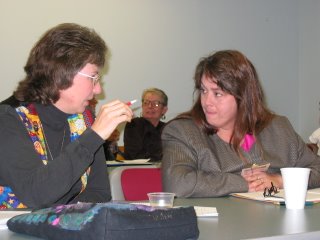
Blogs are an SEO powerhouse for a non-profit organization and its various programs and events. Often lost in a sea of events that fill the search engine results pages known as SERPs, non-profit pages need an SEO boost. Enter the non-profit association blog.
A non-profit organization can gain value from a blog in the form of more membership, greater volunteer involvement, and better communications with members, the media, and the general public. To achieve these goals, the blog must be found on the search engines first. A bit of care with blog SEO will go far to getting your non-profit blog to the top of the search engine results.
When choosing your non-profit association blog post topics, think in terms of your organization's overall themes. With many charitable blogs, the focus is quite straightforward, as the theme will be the cause itself. With community service blogs, the topics might be more wide ranging, and the blog might have more than one theme. With a multiple theme blog, try to tie the themes in together with one another. Make the posts relevant to the rest of the blog. Refer to and link to previous postings and other blogs that also cover that topic. Google and the other search engines value theme relevance. Be sure to keep it in mind.

Posts and the post titles should contain the keywords and keyword phrases that your organization is targeting. More importantly, the keywords and phrases should be the ones actually searched by real life people. The two sets of phrases are not likely to be the same lists. Check your visitor logs for actual searches that found your organization's blog. Use those phrases in your posts and titles in various forms. Flip the words around and use different forms of the words. Searches are made in different ways, and you want to rank well for them all.
Your blog title tags, which appear on the very top of your browser on that blue bar, should reflect the most important keywords for your blog. The title tags tell the search engine the themes and topics on the page, like a chapter title in a book. List that phrase first on the very left, and your organization and blog title second, and to the right. Search engines consider the words on the very left to be most important, and decreasing in importance as you move to the right.
My blog appears to violate that rule, but business blog and blog business are my most important keywords and are part of my blog title. If you can get your keywords into you blog title, and the blog descriptiom, they carry powerful weight with the search engines. Be sure to have the blog create separate title tags for every inside archived page. Many, but not all, blogging platforms do that automatically for you.

When you link to other blogs, think in terms of value to your membership. While that appears at first to not be search engine friendly, it is very good for rankings. The search engines are seeking to provide relevant results, and to provide rankings that reflect what searchers want to find. When you link to your own previous posts, or to other blogs, be sure to use the keywords when creating the clickable link. The words that appear on the link are referred to as link anchor text. It is important to search engines as they tell the search engine what the linked blog or post are discussing.
As a result of theme relevance, what is good for your readers is good for the search engines. Provide useful, and informative links and content for your readers and they will thank you. The search engines will reward you as well.
Non-profit organizations can achieve powerful and very tangible benefits from basic blog SEO. Better search engine rankings means more potential members, donors, and volunteers visit your blog. The media can find your blog as well, keeping your organization in the news. The general public can also find out about your programs and events more easily.
Good SEO rankings means a stronger non-profit organization.
Improve your not for profit association blog's search engine optimization today.
No comments:
Post a Comment